University of California San Francisco
Give to UCSF-
-
Brain’s Immune System May Be Key to Better Treatments for Psychiatric Disorders
Anna Molofsky is researching how synapses pruning and formation occur normally during brain development in the hope of determining how subtle shifts in balance lead to neurodevelopmental disorders.
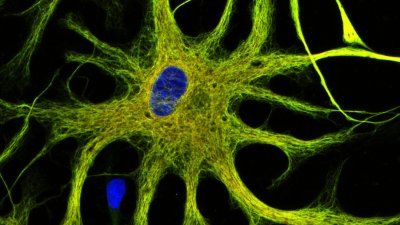
-
Treating Anxiety in Children
-
New Genetic Models of Autism Point to Cellular Roots of Disease
Researchers at UCSF have developed a new genetic model of autism, using neurons created in the lab from patients’ own skin cells.
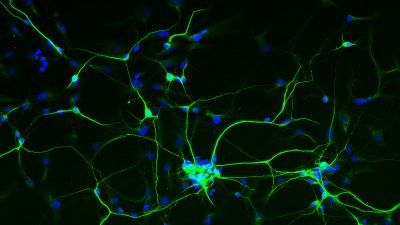
-
Stress in Pregnancy Linked to Changes in Infant’s Nervous System, Less Smiling, Less Resilience
Maternal stress during the second trimester of pregnancy may influence the nervous system of the developing child, both before and after birth.

-
UCSF Weill Institute for Neurosciences Announces Trailblazer Awards
The UCSF Weill Institute for Neurosciences has awarded funding to 11 UC San Francisco scientists seeking to support the Institute’s mission to improve the lives of people with brain diseases and disorders through innovative projects that unite the scientific disciplines of neurology, psychiatry and neurosurgery.

-
A Change of Mind: Scientists Are Learning to Predict Psychosis Years in Advance—and Possibly Prevent It
-
Cell Mapping Initiatives Aim to Uncover Hidden Pathways of Disease
UCSF researchers are leading several initiatives that aim to see how dozens of seemingly unrelated genes and proteins involved in a disease are in fact all part the same interconnected biological pathway.
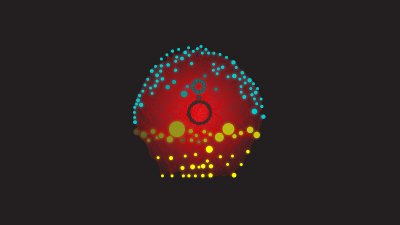
-
UCSF Specialties Among World’s Best in US News Global Universities Rankings for 2018
UCSF has ranked in the top 10 for seven specialties in 2017 Best Global Universities rankings released Tuesday by U.S. News & World Report.
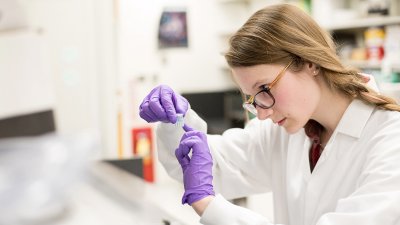
-
Matthew State Awarded Sarnat Prize for Mental Health Research
Matthew State is one of three recipients of the 2017 Rhoda and Bernard Sarnat International Prize in Mental Health given by the National Academy of Medicine.
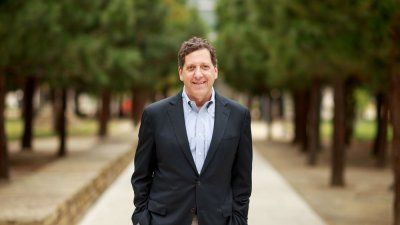
-
Protein Pair Keeps Brain Function Stable
UCSF researchers have discovered that two molecular partners interact at synapses to maintain stable neuronal function.

-
Top Avoidable Emergency Room Visits: Alcohol, Dental Issues and Depression
Alcohol abuse, dental conditions and depression were among the top causes of avoidable emergency room visits nationally.

-
Talk Therapy with ‘Self-Forgiveness’ Focus Eases PTSD in Vets Who Have Killed
Veterans who have killed in combat and suffer from nightmares, hyper-vigilance to perceived threats, and numbness to people and activities that once made them happy, may be helped by a six-to-eight week talk therapy program.
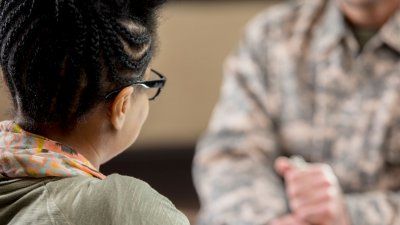
-
Insomnia Linked to Premature Birth in Study of 3 Million Mothers
-
Sleep Disorders Linked to Preterm Birth in Large California Study
Pregnant women who are diagnosed with sleep disorders such as sleep apnea and insomnia appear to be at risk of delivering their babies before reaching full term.

-
Genetics, Altered Brain Structure Offer Window into Autism Severity
Rare deletions or duplications of about 600 genetic “letters” in a region on chromosome 16 confer a high risk of autism spectrum disorders (ASDs) and other neurodevelopmental conditions.
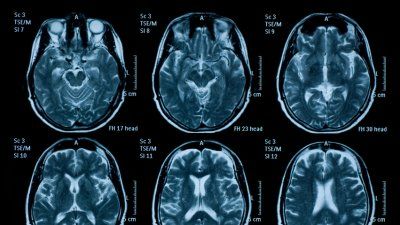
-
Elevated Rate of Autism Symptoms Found in Children with Tourette Syndrome
Around one in five children with Tourette syndrome, a neurological disorder characterized by involuntary movements and vocalizations, met criteria for autism in a study headed by UCSF.
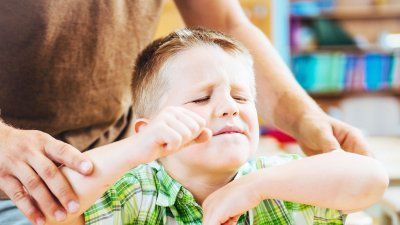
-
Research on transgender children still in its infancy
-
UC Regents Approve Building Plans for 3 Projects in Mission Bay, Dogpatch
The UC Board of Regents have approved plans for three new UCSF building projects, including a new neuroscience building on the Mission Bay campus as well as a new psychiatry building and student housing in the nearby Dogpatch neighborhood.
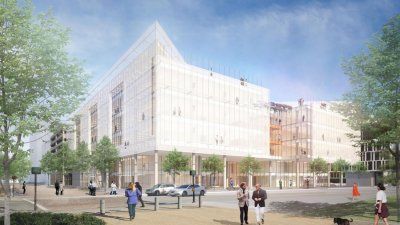
-
First Clear-Cut Risk Genes for Tourette Disorder Revealed
Researchers made a significant advance, identifying the first “high-confidence” risk gene for Tourette disorder as well as three other probable risk genes.
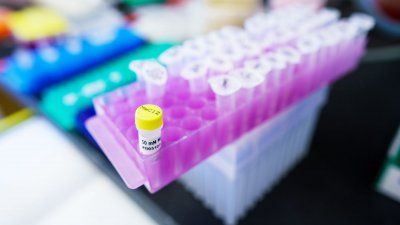
-
Oxytocin, the 'Love Hormone,' Being Tested for Treatment of PTSD and Alcohol Abuse
A new trial may hold new hope for military personnel with PTSD and alcohol abuse through treatment with oxytocin, sometimes referred to as the “love hormone.”

-
This Video Game Helped Some Kids Overcome Attention Problems
-
New Tool Illuminates Cell Signaling Pathways Key to Disease
In a major advance for fundamental biological research, UCSF scientists have developed a tool capable of illuminating previously inscrutable cellular signaling networks.

-
Depression or Dementia? Imaging May Solve Diagnostic Dilemma
-
Autism Researchers Discover Genetic ‘Rosetta Stone’
Distinct sets of genetic defects in a single neuronal protein can lead either to infantile epilepsy or to autism spectrum disorders.

-
Patients with Severe Mental Illnesses Slip Between Cracks in HIV Testing
People with bipolar disorder, schizophrenia and major depression with psychosis may be up to 15 more likely than the general population to be HIV positive, but are only marginally more likely to be tested for the virus.

-
This Simple Strategy Could Help Doctors Ask Teens About Gender Identity
-
Abortion Is Found to Have Little Effect on Women’s Mental Health
-
Killing in War Leaves Veterans with Lasting Psychological Scars, Study Finds
Killing in war often triggers a moral conflict in veterans that can damage their self-image, relationships and spirituality.

-
A Mental Test Before Surgery